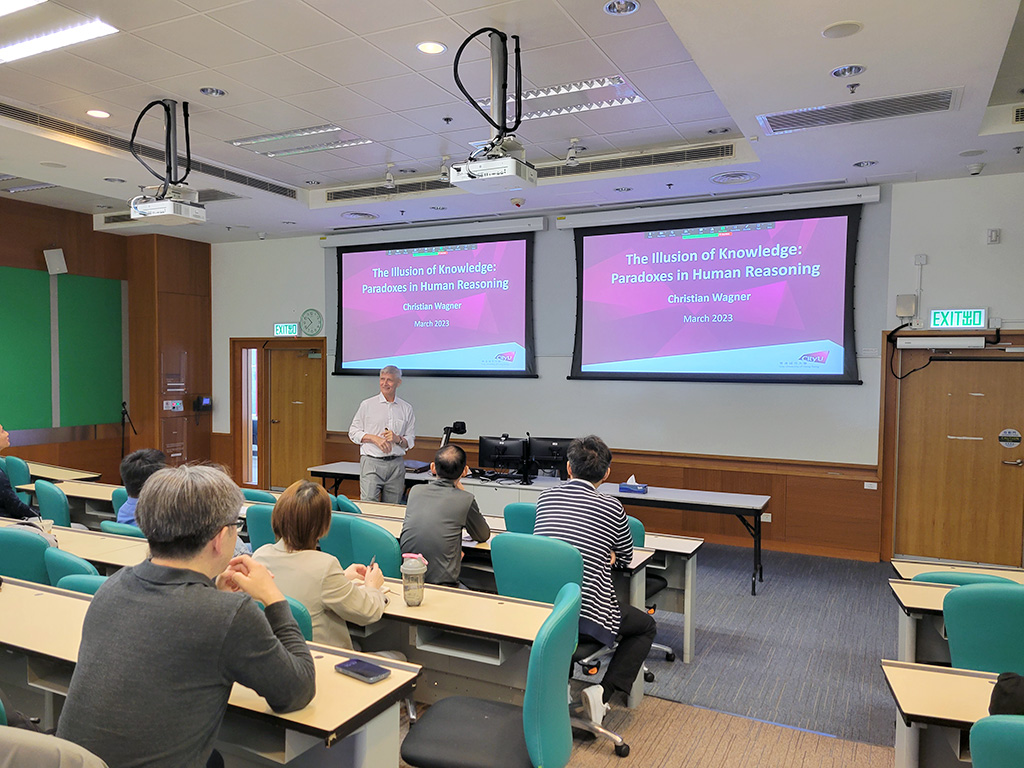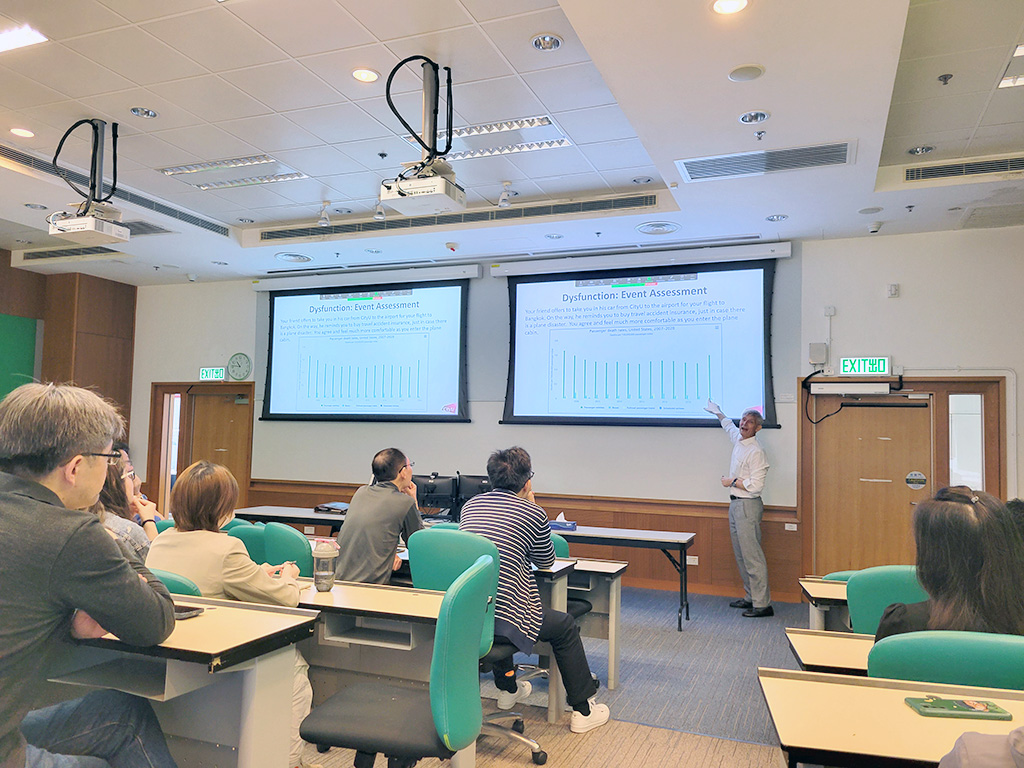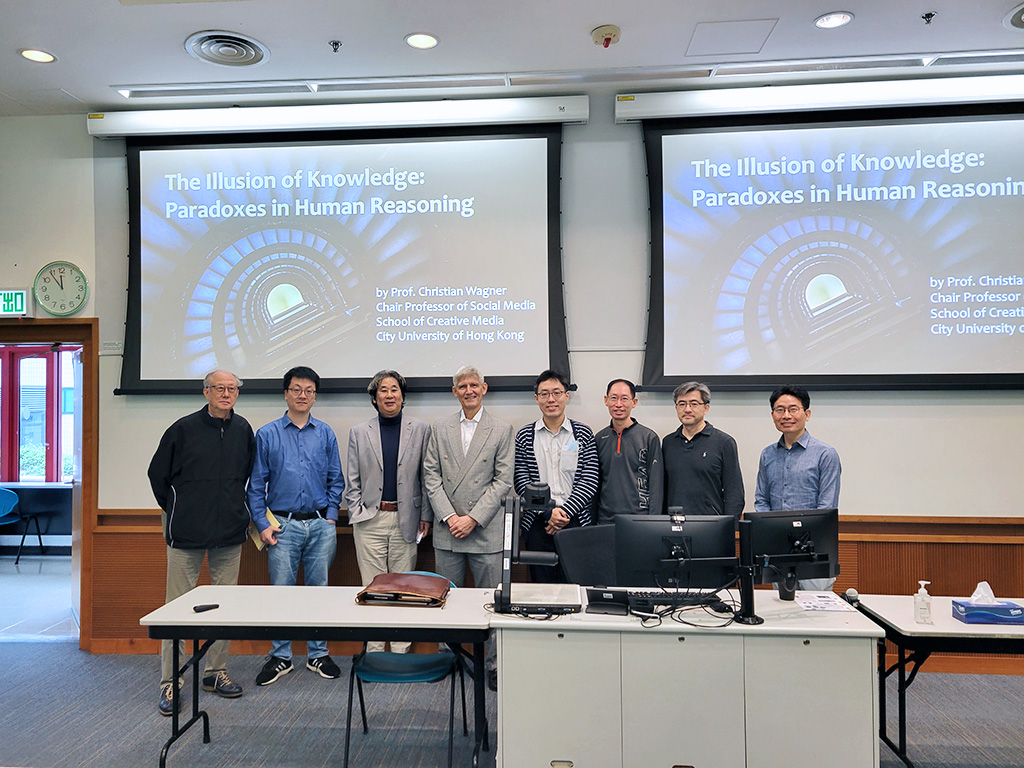


Professor Christian Wagner delivered an engaging seminar titled “The Illusion of Knowledge: Paradoxes in Human Reasoning”. Professor Wagner is a Chair Professor in the School of Creative Media and a member of CityU’s faculty for over 25 years. He received his PhD in Business Administration from the University of British Columbia in 1989. Thereafter he spent seven years as a faculty member at the University of Southern California, before joining City University in January 1996. He has a wide range of research interests, including creativity support, collective intelligence, knowledge management, and the use of computer games for learning. Professor Wagner is also an award-winning author, multiple teaching award winner, experienced administrator, and software entrepreneur, and is best known for his research on wikis and their impact on organisational performance.
In this seminar, Professor Wagner explained that when people carry out logical operations, they rely mainly on two types of mechanisms; computational processing (pattern/data analysis) and memory retrieval (heuristics). The former is deemed slow thinking, while the latter is known as fast thinking.
Experts of their domain specialise in recognising patterns tend to use slow thinking rather than relying on fast thinking heuristics. For example, a mathematician is likely to solve quadratics problems without using standardised formulae, via deductive reasoning. However, the average student would be unable to solve such a problem without using rote-learned formulae (mathematical heuristic). While retrieval-based solutions are often faster, they only work when the problem falls within the stereotype of the heuristics. For problems outside of the stereotype, fast thinking leads to increasingly poor estimations and thus poorer answers/results.
In Professor Wagner's endeavour to simulate "expert systems," he discovered that human reasoning can be paradoxical, and hence arduous to model. A prominent example of this paradox is the concept of stable beliefs. This concept illustrates that people tend to cling onto their erroneous beliefs even when faced with overwhelming evidence that contradicts their beliefs – which can be particularly problematic for scientific progress. The paradox of stable beliefs suggests that people's confidence in their beliefs may remain unshaken, even if those beliefs are proven to be incorrect.
Professor Wagner also touched on the paradox of Bayesian updating, which highlights another aspect of human reasoning. When humans collect data from different sources, they often use weighted aggregation to update their dataset. However, a paradox arises when humans collect opinions from other people, as they tend not to allocate equal weights to these opinions. This paradox highlights the inconsistency in how humans weigh and evaluate different types of information, and suggests that we may have inherent biases in how we process and evaluate information.
In conclusion, the paradoxes in human reasoning discussed by Professor Wagner shed light on the complex nature of human cognition. The paradoxes of stable beliefs and Bayesian updating demonstrate how humans can be paradoxical and difficult to model. These paradoxes have significant implications for various fields, including psychology, philosophy, and artificial intelligence. As we continue to explore the intricacies of human reasoning, understanding these paradoxes can help us better understand the limitations and biases of human cognition, as well as provide insights into how we can improve our decision-making processes.